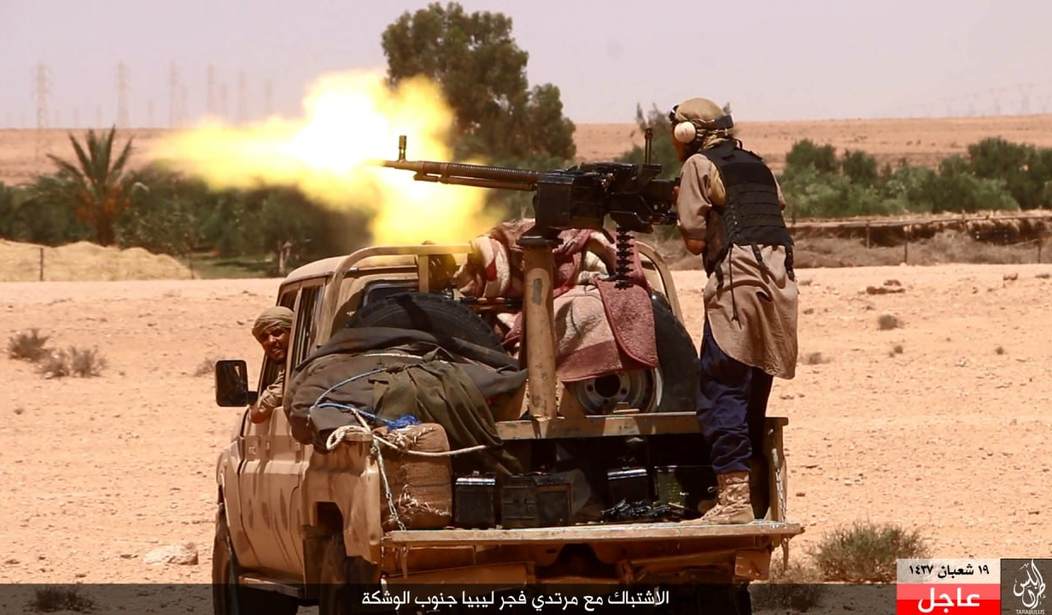Secretary of State John Kerry suggested referring to ISIS as “the world’s most evil terrorist group” so as to not use the acronym references to “Islamic” or “State.”
Kerry noted at the Virtuous Circle Conference on Monday in Silicon Valley that he “rarely” uses the terms “ISIS” or “ISIL” at all.
“I’ve been on a lot of campaigns to get everybody to say “Daesh” because it’s a pejorative in Arabic — the initials — and I haven’t won that campaign at all,” he added.
“But it’s just — you kind of resort to the use of those letters because it refers to a state — it’s the Islamic State — and it’s not a state. There’s nothing legitimate about it. There’s nothing Islamic about it. It’s a complete misnomer. It’s their title and we shouldn’t use it and I feel that very strongly,” Kerry continued. “But it has gained — it’s the recognized term and if you want people to know what you’re talking about, unfortunately, sometimes you are forced to.”
He stressed that “it would be great if we could get away from that, and the key is the media to begin really to call it something else.”
“The terrorist group Daesh — that would be the best moniker, I think,” he said. “Or the most evil — the world’s most evil terrorist group.”
Daesh also incorporates Islamic State, just in Arabic. It stands for al-Dawla al-Islamiya al-Iraq al-Sham. It’s one letter away from the word “daes,” which means to crush or trample. ISIS hates the Daesh term and has threatened violence against people who use it.
“Anyway, it’s hard,” Kerry added. “Today’s media is so — it’s so labelized and it reduces everything into these simplistic things. It’s very, very hard to break out once something has stuck.”
Kerry also talked at the technology confab about the State Department’s Global Engagement Center “mostly focused on countering violent extremism.”
“And we have 131 employees authorized, I think we’re currently at about 68. Why are we not at full force? Because it’s pretty competitive out here and tough to get people… it’s hard to find the talent and fill the slots, number one. It’s just been a slower growth process than we would have liked,” he said of the department meant to counter terrorist propaganda online.
“We’re messaging and changing the narrative of ISIL, of Daesh. And countering that narrative very forcefully. We use a lot of defectors, a lot of survivors of Daesh’s brutality. And they are the people who are messaging. They are the communicators. They’re the people who are debunking the extraordinary lies of a fairly sophisticated Daesh operation, I might add. It’s quite amazing how effective they’ve been for a while in proselytizing propaganda and so forth,” Kerry said.
“Their narrative is caliphate, we’ve taken territory, we’re the future of true Islam, and on you go. And you have to find a way to counter that that’s effective and I think we’ve gotten pretty good at it. We know we have reduced recruits. We know we have cut financing. And I am absolutely convinced, not any exaggeration, that we are going to destroy ISIL as we know it now, in the sense that there’s still a few al-Qaeda folks around, but there’s not the day-to-day threat that existed. We’re moving on Mosul, we’re moving on Raqqa, we’re shrinking their space significantly. They haven’t taken one piece of territory and held it since May of last year and their leadership is being decimated person by person.”
Al-Qaeda has been growing in the past few years, from the opening of its al-Qaeda in the Indian Subcontinent chapter to numerous attacks by al-Qaeda in the Islamic Maghreb. The Treasury Department recently sanctioned “part of a new generation of al-Qaeda operatives” being sheltered by Iran.
House Intelligence Committee Chairman Devin Nunes (R-Calif.) told CBS on Sept. 11 that al-Qaeda “continues to metastasize” and “is very, very good at seeding people in and waiting. They’re very patient… they’re spreading globally very, very slowly.”
Kerry added that “the problem is there have been thousands of fighters over the course of five years, some of whom have gone back to other countries, where through the Internet they’ve been able to build subgroups of the group, or create affiliations with Boko Haram, with al-Shabaab in Somalia.”
“And so we’re going after them too, and that’s why Somali is one of the languages we’re working in now, and French for Boko Haram,” he said. “And we’re getting pretty good at this.”









Join the conversation as a VIP Member